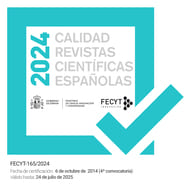Sustainable tourism: a case study on the experience of the Prainha do Canto Verde community on the coast of Ceará
DOI:
https://doi.org/10.25145/j.pasos.2003.01.022Keywords:
tourismAbstract
The present study first makes a short analysis of the use of the expression Sustainable Tour- ism at internet sites of different international and Brazilian organizations to find out that none of them is of much help to evaluate the sustainability of community based tourism projects. This is why we adopt the criteria which the German NGO “Studienkreis für Tourismus und Entwicklung” (Study Group of Tourism and Development) uses to judge candidates for the TODO prize. The prize is awarded each year to two or three communities considered worthy of the title Socially Responsi-ble Tourism. The case study shows how a com-munity occupying a small stretch of beach since 1870, develops its principal activity which is fish-ing and at the same time writes some pages of history thanks to the spirit of adven- ture of its population, while suffering the aggression of real estate speculators who sense a million dollar busi-ness on the land where the humble fisher-families live. The study looks at the community, which, with the support of NGO´s and a human rights defense group not only resists the speculators, but looks for the way of sustainability. For them tour-ism means not only complementary income to fishing, but also a way to show that communities with strong village organizations and support from well meaning volunteers can develop tourism, challenging government view that tourism is for business. Income from tourism stays and circu-lates in the community generating economic ac-tivities. We also see how tourism developed by the community within its eco-system helps to raise awareness for nature of the population, at the same time recovering and strengthening cultural expression and diversity, lifting self-esteem of this traditional population, called Jangadeiros..
Downloads
Downloads
Published
How to Cite
Issue
Section
License
I confirm that the work is original (of my/our authorship), and that it will not be submitted to other journals or publications until the final resolution of the review process in PASOS, RTPC.
I authorize the publication of my work by PASOS, PSTN of free and open access in any of the formats that I deem appropriate, for an indefinite period of time and as a non-remunerated collaboration.
Likewise, the author(s) understands that the published work may be linked or deposited on any server or included in other publications (republication), provided that the new place and/or new edition references the original publication and acknowledges the authorship and copyright ownership of PASOS RTPC publications.
Authors understand that a plagiarism-self-plagiarism check will be performed, and the article may be removed at any time from the editorial flow.






